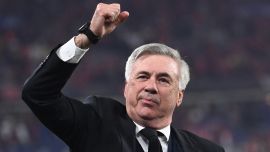The image would indelibly mark President Jair Bolsonaro's term: the sky over São Paulo turning dark at 3pm as smoke from fires in the Amazon rainforest engulfed Brazil's biggest city.
The black haze that travelled thousands of kilometres to the economic capital that day – August 19, 2019, just under nine months into Bolsonaro's term – drew global attention to the accelerating destruction of the Amazon under the far-right president, whose environmental record is under new scrutiny as Brazil holds elections Sunday.
Climate scientists and environmentalists say the stakes for the planet are potentially huge in the divisive race, which pits Bolsonaro against leftist ex-president Luiz Inácio Lula da Silva (2003-2010).
Three years after the fires that sparked worldwide outcry, Bolsonaro's record on protecting the Amazon and its Indigenous inhabitants has only gone from bad to worse, activists say.
Under the former Army captain, average annual deforestation in the Brazilian Amazon has risen by 75 percent compared to the previous decade, as the government has slashed environmental funding by 71 percent from its high in 2014.
Along the way, Bolsonaro has fired or sidelined government officials who pushed back against his environmental policies, attacked foreign critics with nationalist rhetoric about Brazilian sovereignty over "our Amazon," and played to his hardline base and backers in the powerful agribusiness industry with calls to make the rainforest an engine of economic development.
While Lula's own environmental record is hardly spotless, activists say there is no comparison between the two.
"We're facing a radical choice: decide whether the Amazon lives or gets a death sentence with Bolsonaro's re-election," said Marcio Astrini, head of the Climate Observatory, a coalition of environmental groups. "This is the most important election in Brazilian history."
'Not a good thing'
Environmental issues have taken a back seat to economic and social ones in the campaign. But with the world scrambling to hold global warming to a liveable limit, the issue matters beyond Brazil.
The Amazon basin, 60 percent of which is in Brazil, is looking fragile. Research shows the world's biggest rainforest, which until recently helped soak up humanity's soaring carbon emissions, is now strained to the point it has started releasing more carbon than it absorbs.
A hemisphere away, US climate scientist Scott Denning says he doesn't follow Brazilian politics, but is closely watching what happens in the Amazon, whose CO2 emissions doubled in Bolsonaro's first two years – reaching the equivalent of five percent of global fossil-fuel emissions.
"Four more years like that, and that's quite a lot of CO2. That's not a good thing," said Denning, an atmospheric scientist at Colorado State University. "The Amazon is this humongous living carbon sponge. But now we're cutting and burning the trees faster than they can regrow."
The timing is terrible, he noted. "The rest of the world is scrambling to cut our fossil-fuel emissions... and Bolsonaro is pulling in the opposite direction."
Lula's imperfect record
In a statement, Bolsonaro's campaign defended his record on the Amazon as "balancing environmental protection with economic growth."
Lula, who leads in the polls, has himself faced criticism for his environmental record, which notably included the controversial decision to build the massive Belo Monte hydroelectric dam in the Amazon.
In his first year in office, deforestation reached 27,772 square kilometres (10,723 square miles) in the Brazilian Amazon – the second-worst year on record, and far higher than the 13,038 square kilometres under Bolsonaro last year.
However, by the end of his term, Lula's government had slashed deforestation by 75 percent, to historic lows. Under Bolsonaro, it has sharply increased.
Lula got a key endorsement two weeks ago when respected former environment minister Marina Silva–- who quit his government in disgust in 2008 over the leftist's Amazon policies – announced she was backing him.
The environment "isn't exactly close to Lula's heart," says veteran activist Claudio Angelo, who worked on Silva's unsuccessful 2018 presidential campaign. But Lula's camp knows it has the upper hand on the issue.
The ex-metal worker has vowed to go "even further" than Brazil's emission-cutting targets under the 2015 Paris Accord, revive the internationally backed, US$1.3-billion Amazon Fund to protect the rainforest – suspended under Bolsonaro – and work to achieve net-zero deforestation.
related news
by Joshua Howat Berger, AFP

























Comments